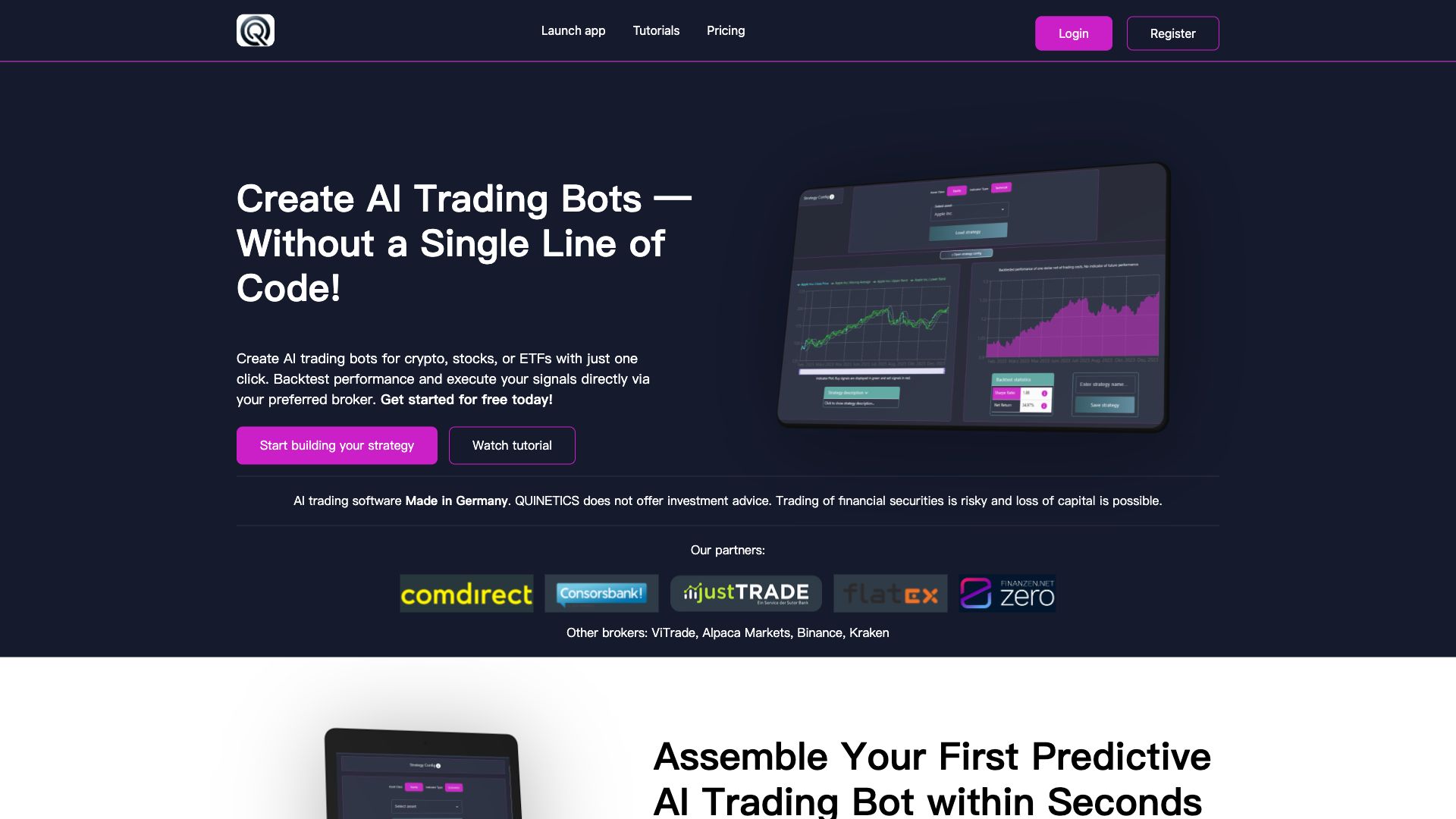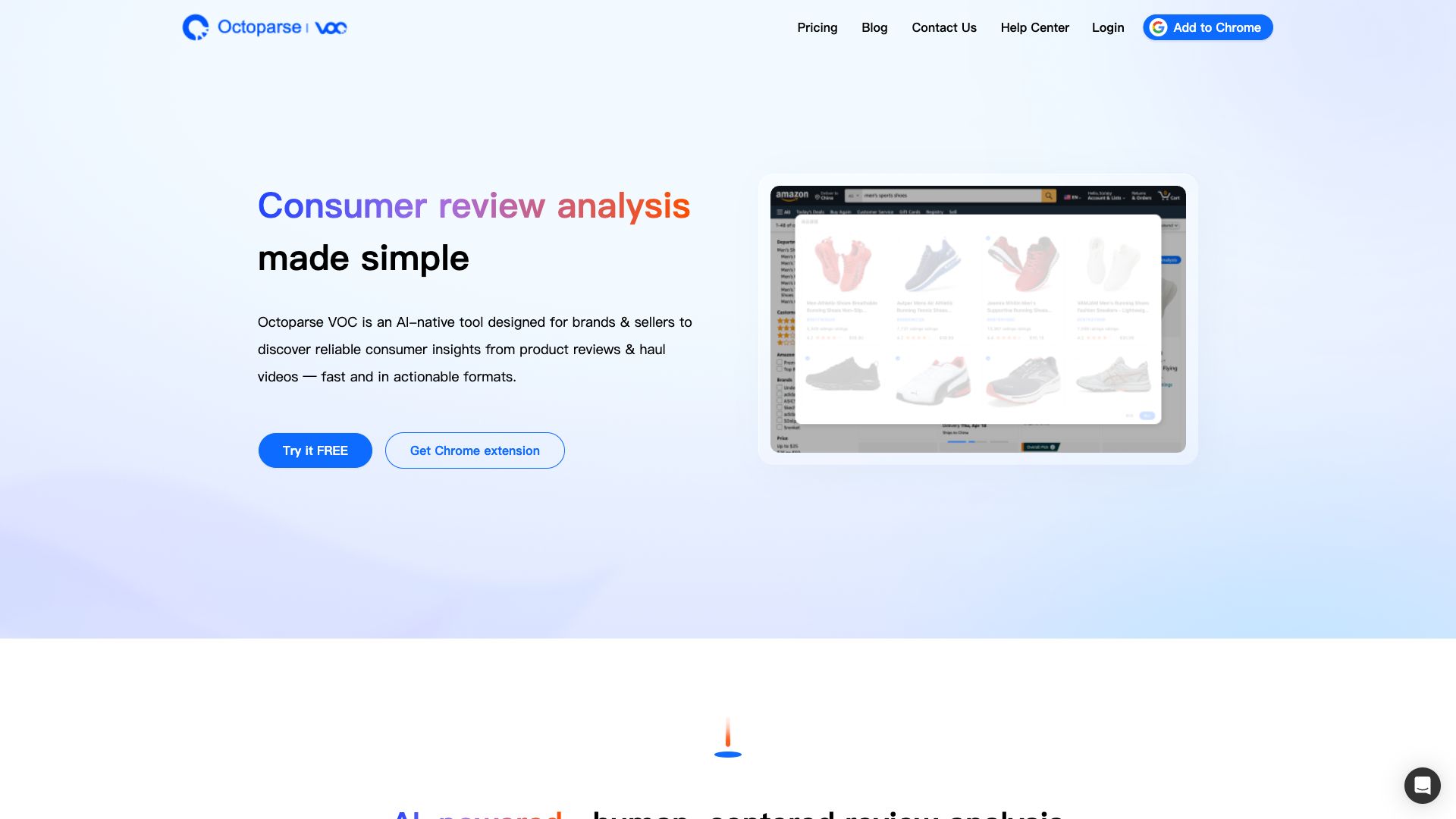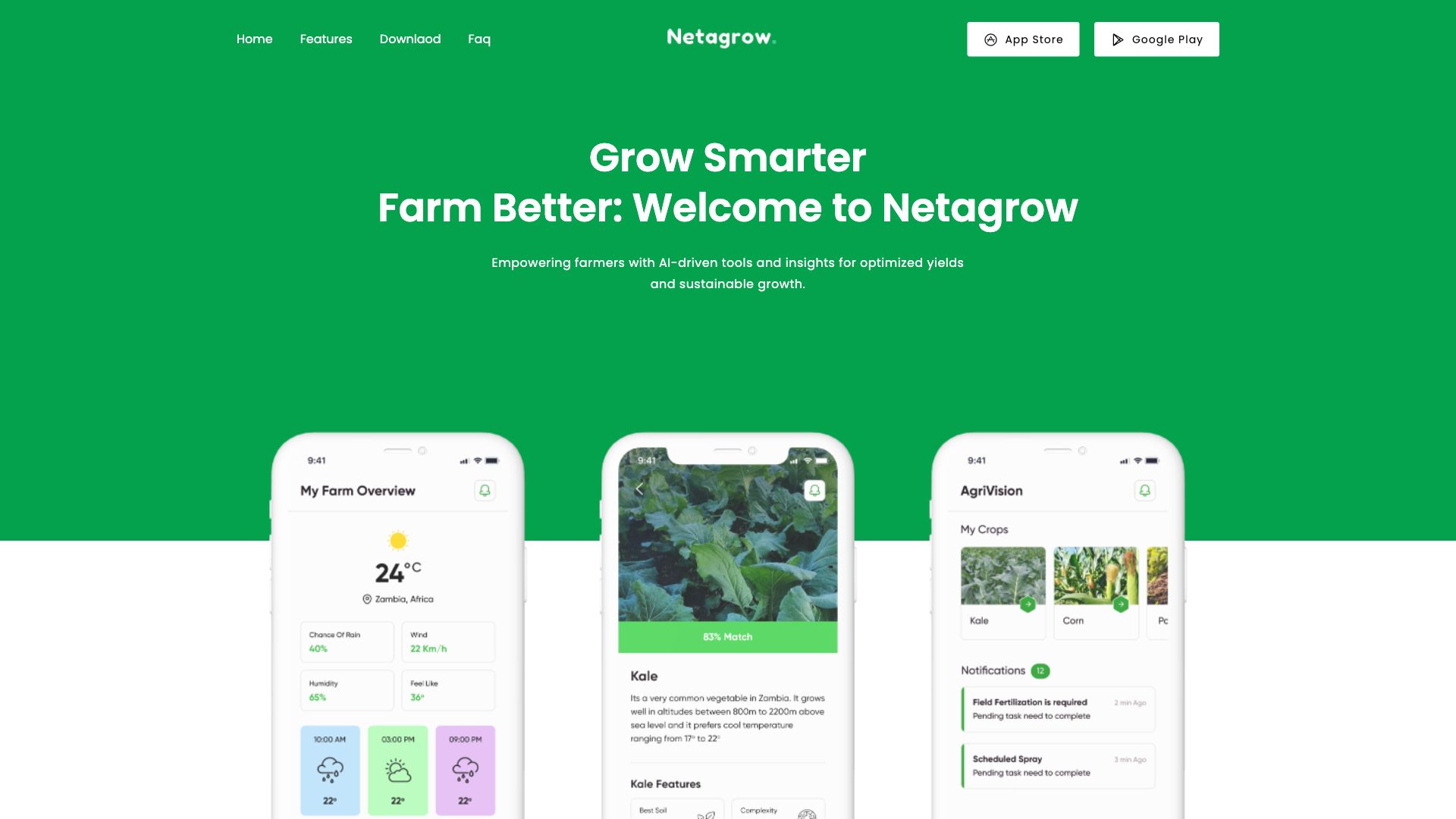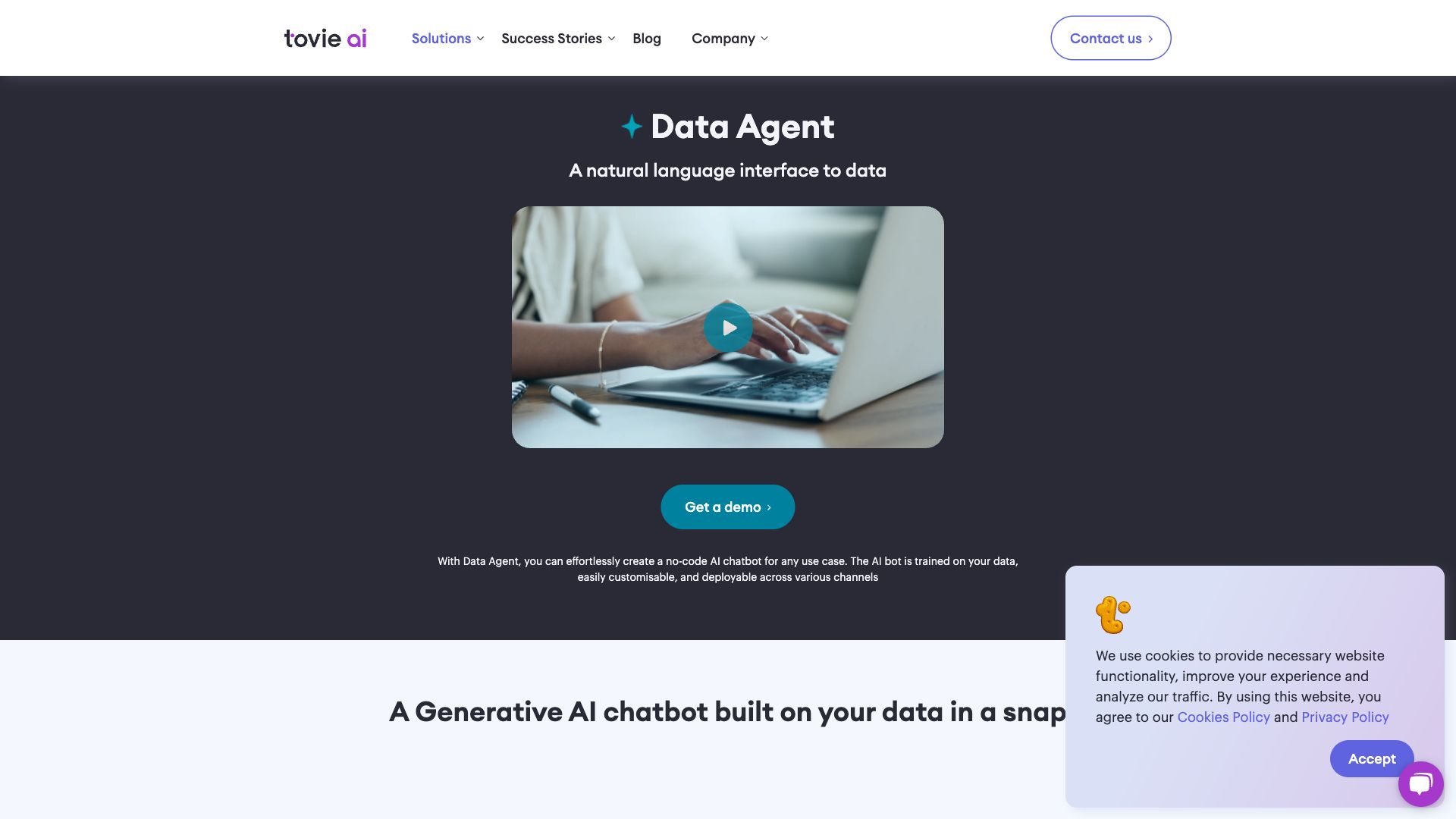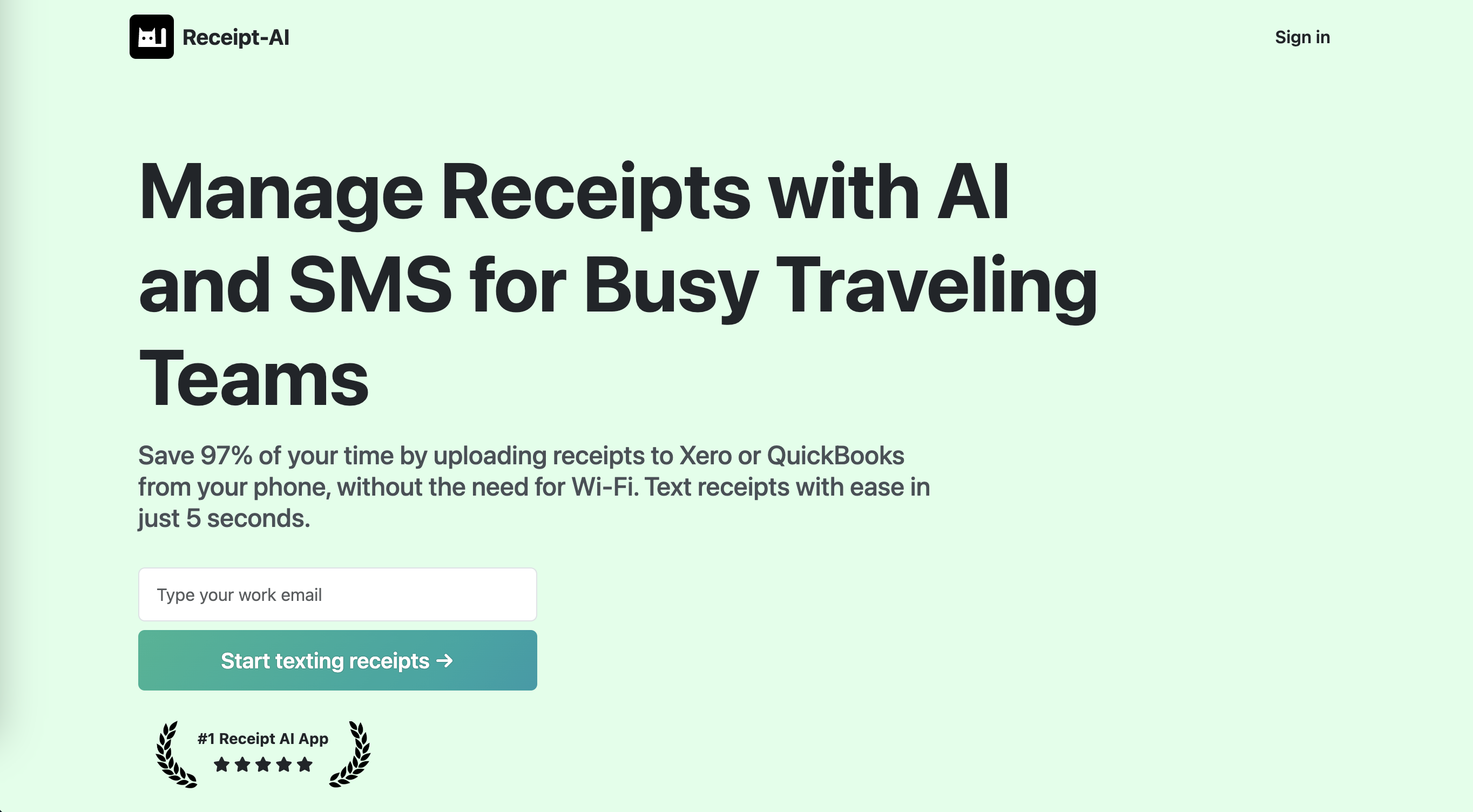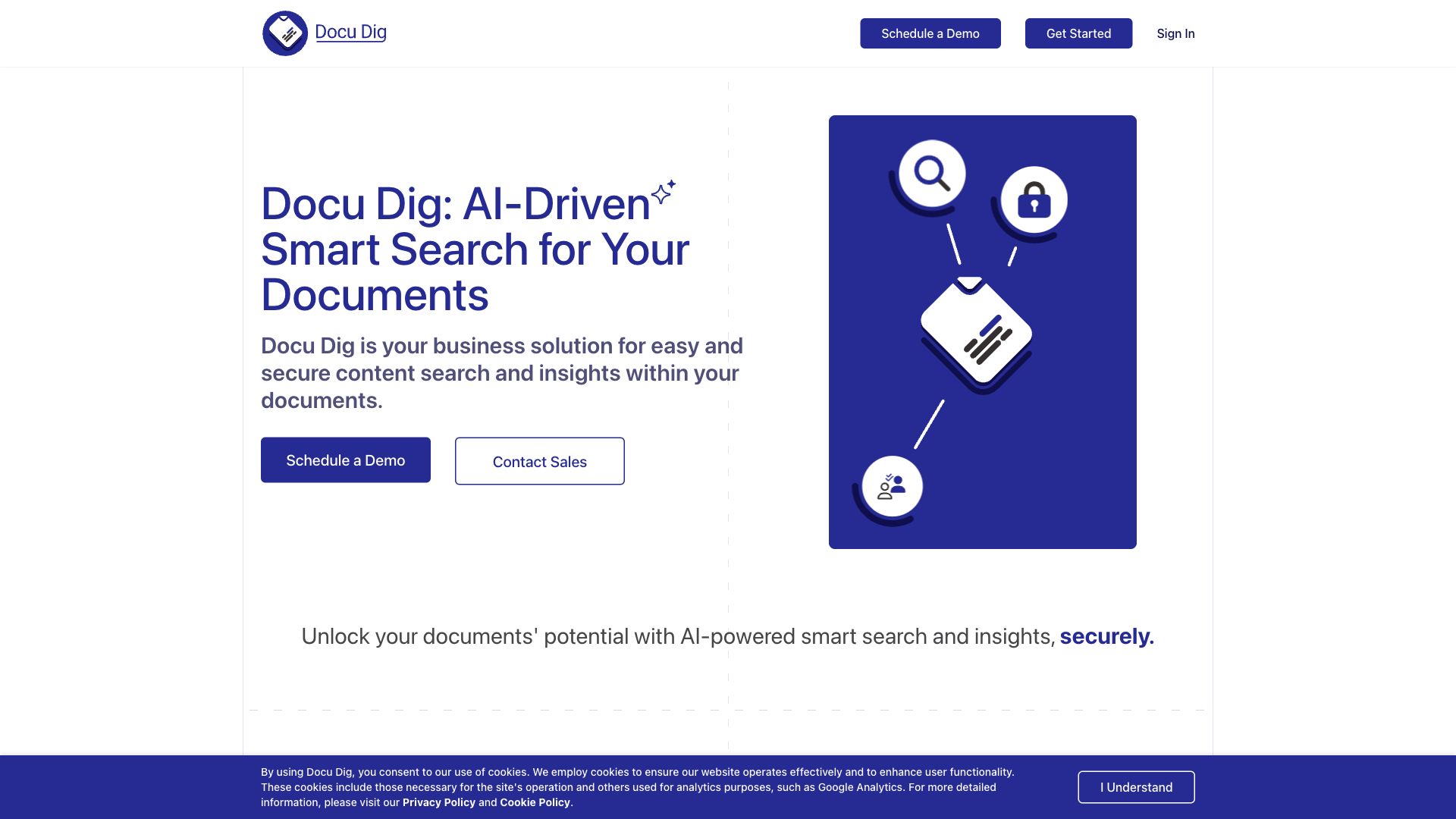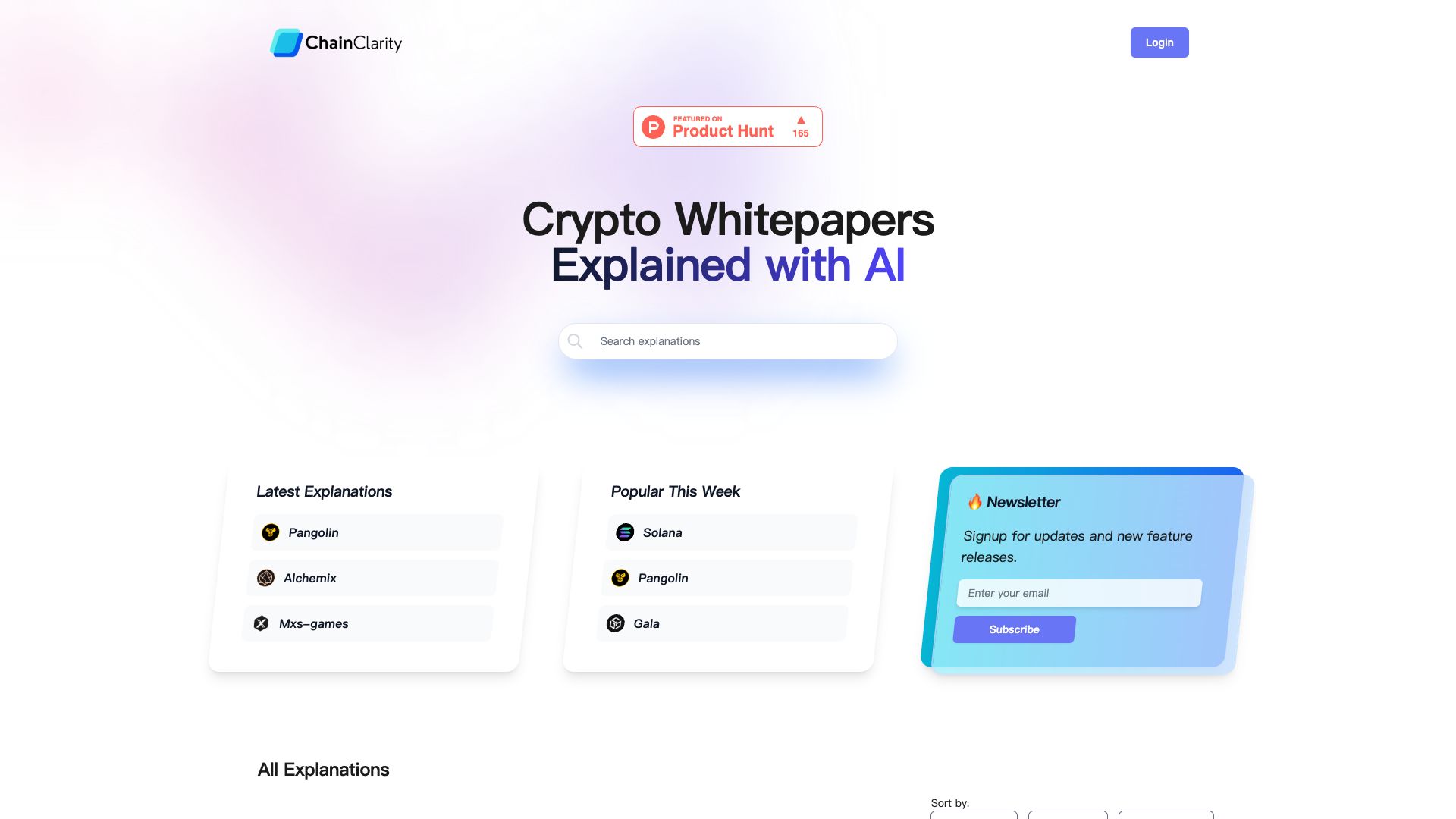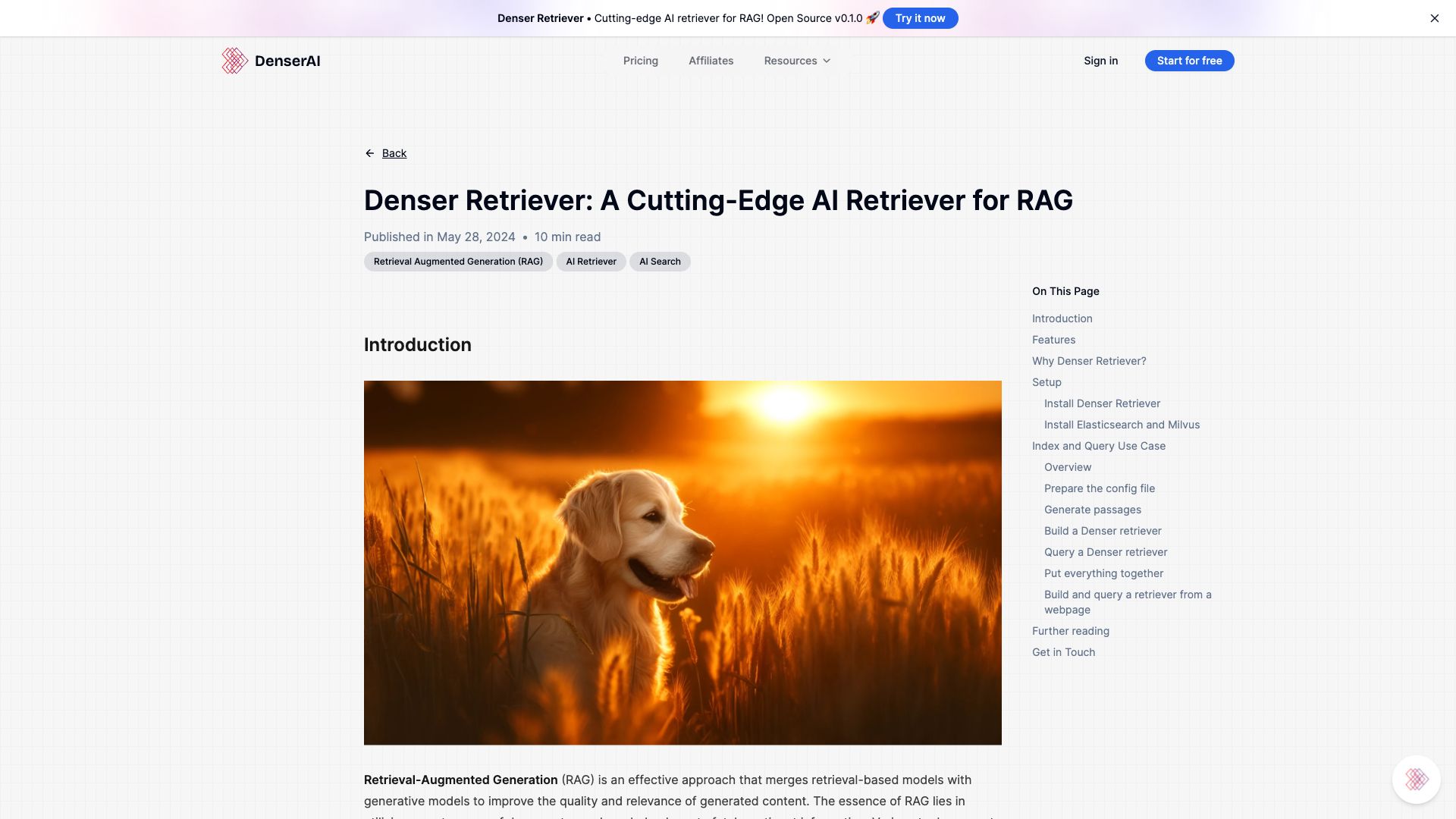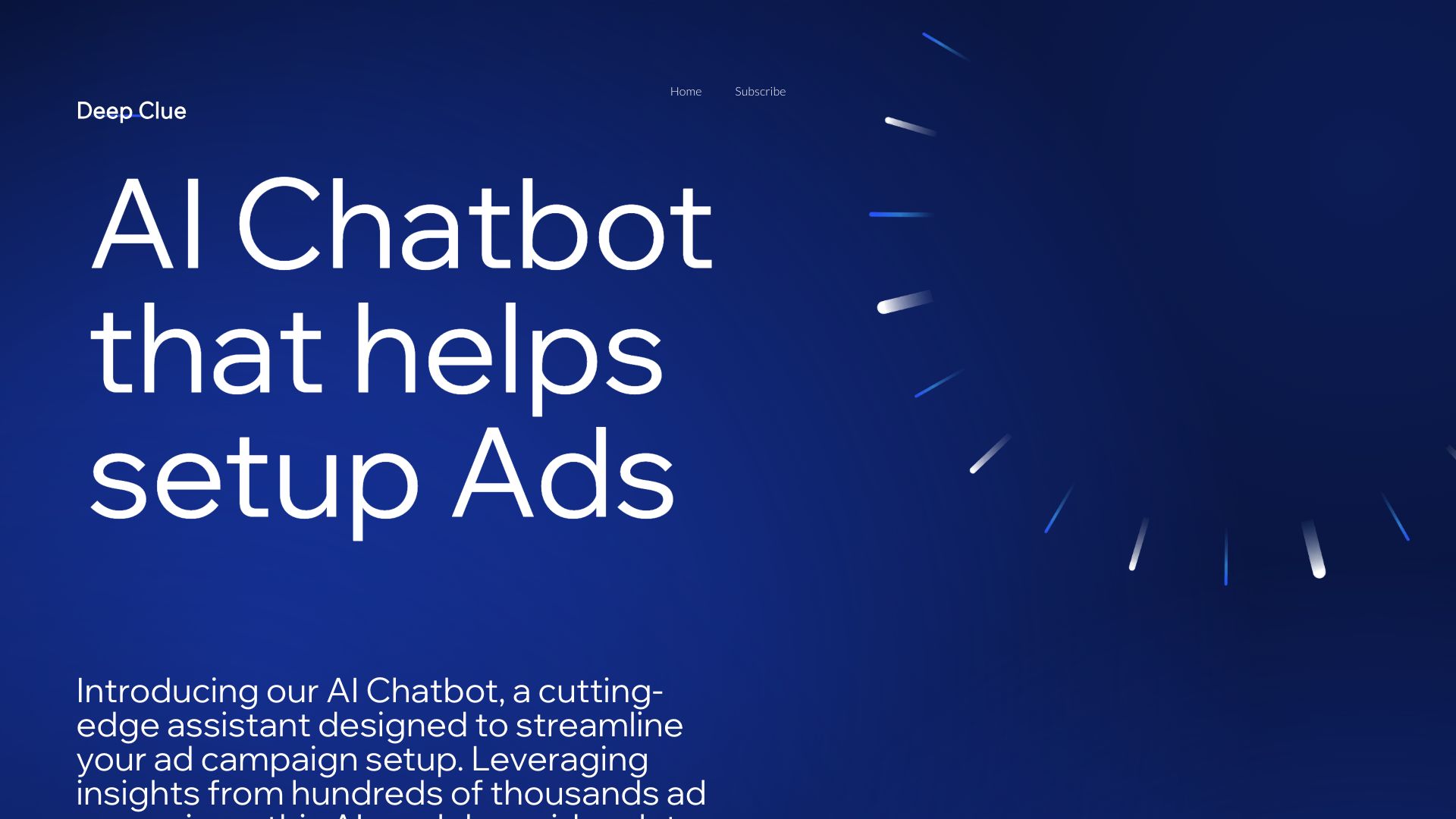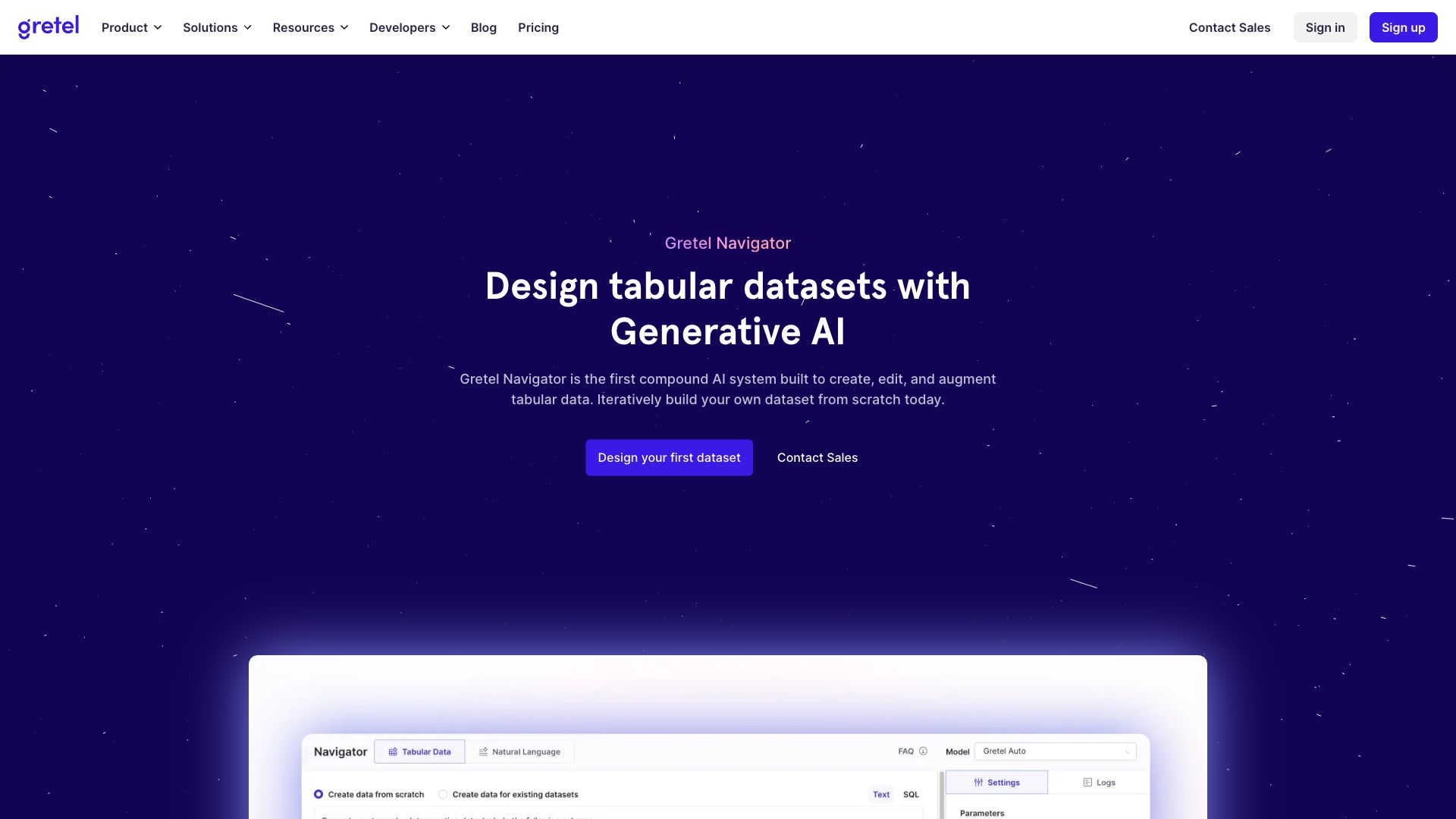Awesome AI Data Mining Tools in 2024
Discover the awesome 11 AI tools for 2024 By Candytools
Create AI trading bots without coding knowledge. Backtest the performance and trade your strategies directly. Get started for free today!
Octoparse VOC provides the AI-based professional voice of customer analysis and product review research for your e-commerce business.
Empowering farmers with AI-driven tools and insights for optimized yields and sustainable growth.
Create your own secure data search agent for quick access to information regardless of the data format. Custom QA chatbot on your data for natural language search. Generative AI for business. Enterprise LLMs fine-tuning.
Save 97% of your time by uploading receipts to Xero or QuickBooks from your phone, without the need for Wi-Fi. Text receipts with ease in just 5 seconds.
Create conversational AI forms effortlessly with Formshare and share them in an instant!
DocuDig uses the power of AI to analyze your documents, extract key information, and turn unstructured data into actionable insights. Streamline your document workflows and unlock valuable information with DocuDig.
Chainclarity provides blockchain analytics software for cryptocurrency businesses and financial institutions. Detect and prevent fraud, comply with regulations, and manage risk effectively with our powerful tools.
Denser Retriever is an AI-powered tool designed to efficiently and accurately retrieve the most relevant content from a large collection of data. Learn how it works and its applications on the Denser.ai blog.
Deepclue is a leading text annotation and data enrichment platform that helps you create high-quality datasets for machine learning. Streamline your annotation workflow, leverage the power of AI, and scale your data projects with Deepclue.
Unlock data insights effortlessly with Gretel Navigator. Visualize, explore, and understand your data with our intuitive no-code platform. Perfect for data discovery, analysis, and sharing.
More AI Tools Categories
What is AI Data Mining?
AI Data Mining is the process of using artificial intelligence (AI) techniques to extract meaningful insights and patterns from large datasets. It goes beyond traditional data mining by leveraging machine learning and deep learning algorithms to analyze data more effectively, identify complex relationships, and make predictions with higher accuracy.
Here's a breakdown:
Traditional Data Mining vs. AI Data Mining:
- Traditional data mining: Relies heavily on manual analysis, statistical methods, and predefined rules. It struggles with complex patterns and vast datasets.
- AI data mining: Utilizes AI algorithms to automate analysis, learn from data, adapt to new information, and uncover intricate relationships that humans might miss.
Key AI Techniques used in Data Mining:
- Machine Learning: Algorithms that allow systems to learn from data and improve their performance over time without explicit programming. This includes techniques like:
- Classification: Categorizing data into predefined groups (e.g., spam detection).
- Regression: Predicting continuous values (e.g., sales forecasting).
- Clustering: Grouping similar data points together (e.g., customer segmentation).
- Deep Learning: A specialized form of machine learning using artificial neural networks with multiple layers to analyze data at a deeper level. This is especially useful for:
- Image and Speech Recognition: Analyzing complex unstructured data.
- Natural Language Processing (NLP): Extracting meaning from text data (e.g., sentiment analysis).
Benefits of AI Data Mining:
- Increased Accuracy and Speed: AI can analyze massive datasets much faster and more accurately than traditional methods.
- Uncovering Hidden Patterns: AI algorithms can identify complex relationships and patterns that would be difficult or impossible to detect manually.
- Predictive Analytics: AI can make predictions about future trends, behaviors, and events based on historical data.
- Automation and Efficiency: AI automates much of the data analysis process, freeing up human analysts for higher-level tasks.
Applications of AI Data Mining:
- Business Intelligence: Understanding customer behavior, market trends, and optimizing marketing strategies.
- Cybersecurity: Detecting anomalies and potential threats in network traffic.
- Healthcare: Diagnosing diseases, predicting patient outcomes, and personalizing treatment plans.
- Finance: Detecting fraud, assessing risk, and making investment decisions.
- Scientific Research: Analyzing data from experiments and simulations to accelerate discoveries.
Challenges of AI Data Mining:
- Data Quality and Preparation: AI algorithms require high-quality, relevant data for accurate analysis. Cleaning and preparing data can be time-consuming.
- Model Interpretability: Understanding how AI models reach their conclusions can be challenging, which is crucial for trust and ethical considerations.
- Bias and Fairness: AI models can inherit biases present in the training data, leading to unfair or discriminatory outcomes.
Overall, AI Data Mining is transforming how we extract value from data. By leveraging the power of artificial intelligence, we can gain deeper insights, make better decisions, and solve complex problems more effectively.
